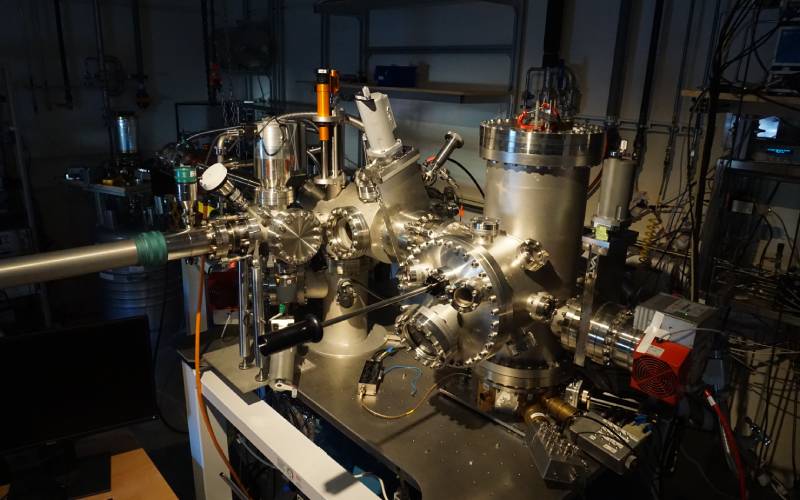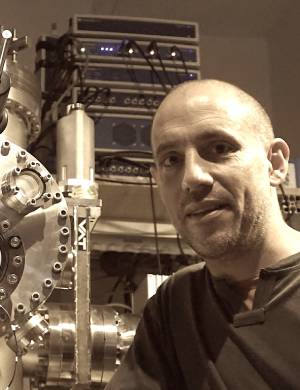
Clemens Winkelmann, a lecturer at Grenoble INP - Phelma, UGA and researcher at the Pheliqs** laboratory, has just been named a senior member of the Institut Universitaire de France (IUF). This distinction entitles successful academics to a two-thirds reduction of their teaching load and increased resources to develop their work over a five-year period.
As a specialist in the quantum physics of electronic systems on the micro- and nanoscopic scales, Clemens Winkelmann focuses his research on superconductivity and quantum phenomena that appear at very low temperatures. “To be quantum, an object has to be small and cold," he explains. “The colder you make an object, the better its quantum nature can exhibit, even if it is relatively large.”
In his laboratory, experiments are based on cryostats*** capable of reaching temperatures of around 0.025 degrees above absolute zero. At these extreme temperatures, certain materials can become superconductors: they conduct electric current without any resistance or loss of energy. “Superconductivity is to normal electrical conduction what a laser is to a light bulb: a coherent, ordered state of great purity”, explains the researcher.

Setting course for the quantum computer
These properties are at the heart of quantum technologies, particularly quantum computers. The basic unit of these machines, the qubit, is often based on a Josephson junction - a tiny contact between two superconductors - capable of encoding information in a quantum state. But this state is extremely sensitive to its environment: any dissipation, any rise in temperature, threatens to make it disappear.
It is precisely these fragilities that are the focus of some of Clemens Winkelmann's research. In two articles published in 2023 in Nature and Nature Physics, he studied dissipation in these junctions, measured the heat released when this quantum state jumps, and tested strategies for restoring coherence. This pioneering work, carried out with very high-precision instruments, highlights challenges that have yet to be fully explored in the race for quantum computing.
Thanks to his appointment to the IUF, Clemens Winkelmann intends to accelerate several projects, one of which is particularly innovative: the development of a scanning tunnelling microscope (STM) incorporating a Josephson junction. This device, currently under development, will use a superconducting tip to probe an equally superconducting substrate, exploiting the quantum tunneling effect - a phenomenon whereby a particle crosses a barrier that is impassable according to the laws of classical physics. “This configuration could enable us to observe the quantum properties of superconducting materials or hybrid structures with unprecedented resolution, and to better understand their behaviour under extreme conditions.”
Alongside his research, Clemens Winkelmann continues to be in charge of the Nanotech degree at Grenoble INP - Phelma, an international programme co-accredited with Politecnico di Torino and the École Polytechnique Fédérale de Lausanne. Each year, Nanotech trains students at the crossroads of physics, engineering and nanotechnology, with a focus on state-of-the-art scientific issues.
*Belongs to an order of magnitude between the limits of the macroscopic world and those of the nanometric world, on a scale where the structures of matter can display characteristics and properties that are relevant to both quantum physics and classical physics.
**CEA / UGA / Grenoble INP - UGA
*** Instrument used to obtain cryogenic temperatures by using the thermal inertia of a very cold liquid.



